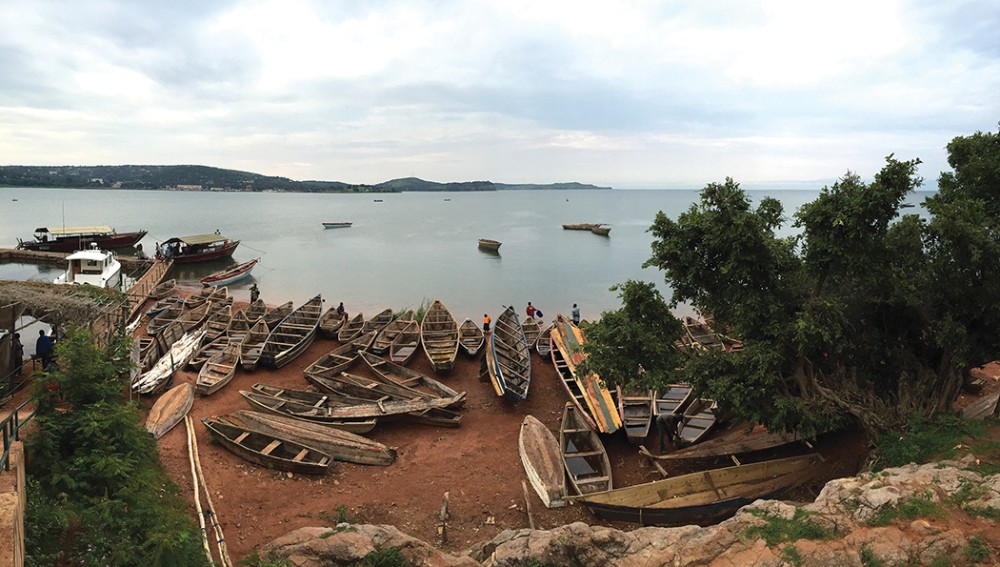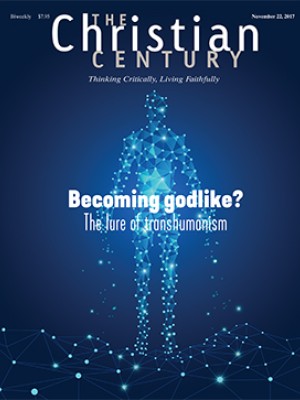In Africa's Great Lakes region, the church is growing—and so is climate conflict
If the water keeps drying up, Christians and Muslims alike will suffer appallingly.

Climate change will transform the world in many and various ways, and the consequences for people of faith will be far-reaching. One threatened area is the Great Lakes region of central and eastern Africa, home to Lakes Victoria, Tanganyika, and Nyasa, as well as to rapidly growing Muslim and Christian populations.
Some of the Great Lakes drain into the Congo River to the west and others into the Nile, which runs over 4,000 miles to the Mediterranean. Those water systems are essential for the continued flourishing of some of the world’s most populous and most rapidly growing nations. By 2050, a billion Africans will be living in areas directly dependent on the Nile. Adding the larger Great Lakes region to the picture raises this water-dependent population by some hundreds of millions more.
Read our latest issue or browse back issues.
The countries of the Nile and Great Lakes territories have resisted the worldwide trend toward lower fertility rates and smaller families. Between 1900 and 2050, the populations of most of these territories will have grown by a factor of twenty or thirty or more. Uganda, which in 1900 had perhaps 2 million people, is expected to have 90 million by 2050.
The Nile Valley and Great Lakes countries account for a large share of the worldwide growth in numbers of both Christianity and Islam over the past century. Christian numbers have surged spectacularly in countries like Uganda, Kenya, and the Democratic Republic of the Congo, and Muslim populations have swelled in Egypt and Sudan. To varying degrees, all countries in the region have mixed populations of Christians, Muslims, and (sometimes) animists, and most have experienced tensions between majority and minority communities. Christian Copts face persecution in Egypt, and sporadic interfaith violence and terrorism erupt in Kenya and Uganda. In 2011, the nation of Sudan split on religious lines, creating the new and predominantly Christian country of South Sudan.
The region includes some of the world’s poorest nations, and poverty and conflicts over resources contribute mightily to religious and ethnic struggles. Environmental issues played a toxic role in the Rwandan genocide of the 1990s.
To say the least, the communities of the Nile and Great Lakes regions stand in a delicate balance with their environment, and population growth severely threatens the balance. Agriculture is critically dependent on water resources, booming cities need water to drink, and many millions of ordinary people find a livelihood in fishing. Water resources will be profoundly stressed even without factoring in the effects of climate change.
Global warming will have its greatest impact on the tropics, that is, those areas between the latitudes of roughly 23 degrees north of the equator and 23 degrees south. That includes the length of the Nile valley south of Upper Egypt, as well as the entire Great Lakes region. Since 2000, Lake Tanganyika has recorded ever-warmer surface temperatures, with grave effects on biodiversity and fish yields. Worst-case scenarios portray this lake, and its regional counterparts, as facing terminal crisis by midcentury. Over decades, whole areas could become arid, uninhabitable wastelands. The deserts are already spreading.
Social collapse will not come overnight, but it is not hard to contemplate the structural impact of diminishing resources. We can expect violent tugs-of-war in many nations over the remaining fertile lands and water supplies. Long historical precedent suggests that such apocalyptic transformations will spawn social conflicts, together with the scapegoating and persecution of unpopular minorities. That is likely to mean the targeting of religious groups, such as Egypt’s Copts or Kenya’s Muslims. Christians and Muslims alike would suffer appallingly in a wave of religious wars, persecutions, and pogroms. Religious civil wars would leave a pernicious legacy of failed states.
In earlier times, Western nations could afford to ignore African crises, as notoriously occurred during the Rwandan massacres. Recently, impoverished Africans have been emboldened to move north to Mediterranean lands, seeking succor in wealthy Europe. If indeed climate change creates the kind of environmental disasters that seem probable, it will drive unprecedented waves of migrants and refugees, both Muslim and Christian, to seek refuge. Climate change will reshape the world’s religious realities. The future is written in water.
A version of this article appears in the November 22 print edition under the title “Climate change and religion around Africa’s Great Lakes.”






